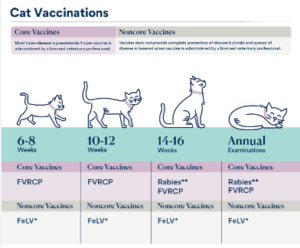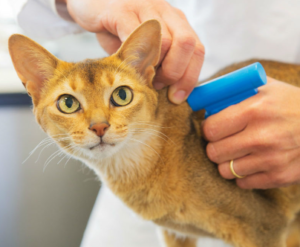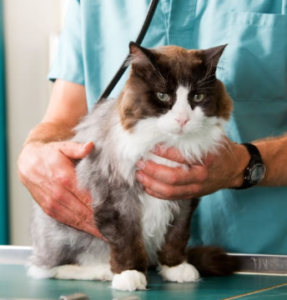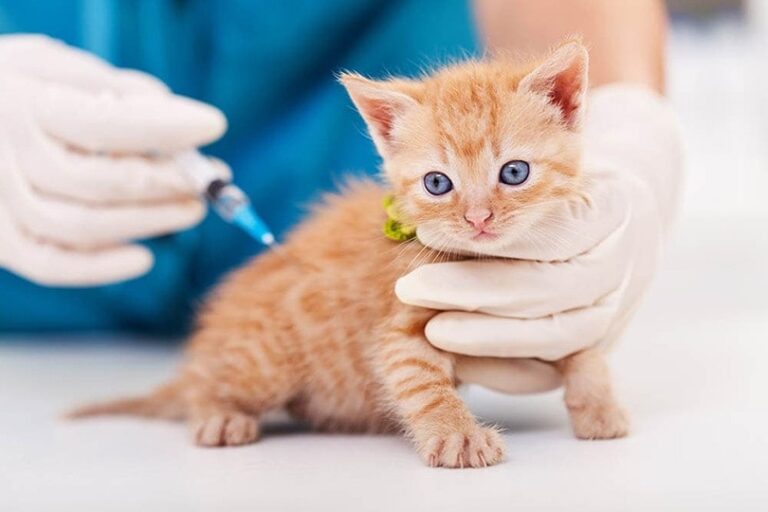Understanding the frequency of rabies vaccinations is crucial for maintaining the health and safety of your feline friend. Just like a surprise explosion in a quiet room, rabies can strike unexpectedly, posing a serious threat to your pet. But don’t worry, with the right information, you can ensure your cat is protected and healthy.
Rabies shots for cats are typically administered according to a schedule that starts when they are young kittens. Initially, a kitten will receive its first rabies vaccination at around 12 to 16 weeks of age. Following this, a booster shot is often required one year later. After these initial vaccinations, rabies shots are usually given every one to three years, depending on the type of vaccine used and local regulations. It’s like setting a recurring alarm to ensure you never miss an important date!
But hey, are you wondering if this schedule is set in stone? Well, it’s always best to have a chat with your vet. They’re the experts and can give you the lowdown on what’s best for your furry companion. Plus, they’ll keep you in the loop about any changes in laws or vaccine recommendations. Remember, keeping up with your cat’s rabies vaccinations isn’t just about following rules; it’s about giving your cat a shield against a potentially explosive situation—a rabies infection.
Rabies Vaccination Schedule for Cats

From there, the schedule can take two paths depending on the vaccine type: a one-year vaccine or a three-year vaccine. If your vet uses the one-year vaccine, your feline friend will need a booster every year to maintain immunity. On the flip side, the three-year vaccine, as the name suggests, requires a booster every three years after the one-year booster. However, don’t let the “three-year” label fool you; it’s crucial to consult with your veterinarian because local laws might dictate more frequent vaccinations.
Here’s a quick glance at a typical rabies vaccination schedule for cats:
| Age | Vaccination | Booster |
|---|---|---|
| 12-16 weeks | First rabies shot | — |
| 1 year | — | First booster (then annually or every three years) |
Remember, this table is a guideline. Your vet’s advice and local regulations should always take precedence. So, make sure to keep those vet appointments and stay informed about your area’s rabies vaccination requirements to keep your feline safe and sound!
Understanding Rabies and Its Risks to Cats

Now, you might be wondering, “How does rabies affect my cat?” The virus attacks the central nervous system, causing symptoms that range from behavioral changes to paralysis and ultimately, death. The key to combating this threat is through vaccination. It’s like a shield, keeping the explosion of the virus at bay and ensuring your cat’s nine lives stay intact. Let’s not forget, rabies is a zoonotic disease, meaning it can be transmitted to humans. This makes your cat’s vaccination not just a pet issue, but a public health one too!
The Importance of Regular Vet Check-ups

Think of it this way: cats are masters of disguise, often hiding discomfort or illness until it’s advanced. That’s why those vet visits are so crucial. They’re like a detective uncovering the hidden clues of your cat’s health. During a check-up, your vet will assess your cat’s overall condition, including weight, dental health, and signs of aging or chronic conditions. And let’s not forget, they’ll also keep you in the loop about the latest in feline health care and answer any of your burning questions. So, not only do regular check-ups keep your cat’s rabies shots on schedule, they’re also a key part of a long and happy cat life. Don’t you think your furry friend deserves that?
Legal Requirements for Rabies Vaccinations
Did you know that the legal requirements for rabies vaccinations in cats can vary widely depending on where you live? It’s not just about keeping your furry friend safe; it’s also about complying with the law. In many places, local or state ordinances require that all domestic cats receive rabies vaccinations. Failure to adhere to these laws can lead to fines, and in some cases, even quarantine of your pet.
For example, some areas mandate that cats receive their first rabies shot at as young as 12 weeks of age, followed by a booster shot a year later. After these initial vaccinations, a rabies shot may be required every one to three years. To make sense of what’s required in your neck of the woods, here’s what you might want to do:
- Check with your local animal control or public health department for specific guidelines.
- Consult with your veterinarian, who is usually up-to-date with the latest vaccination laws.
- Keep a record of your cat’s vaccinations, as proof may be necessary for licensing, travel, or boarding.
Remember, the goal of these laws is to protect public health by preventing the spread of rabies, a disease that is deadly to both animals and humans. So, keeping your cat’s rabies vaccinations current is not only a legal obligation but also a critical step in safeguarding the community at large. Stay informed and ensure your cat is legally protected against this explosive threat!
